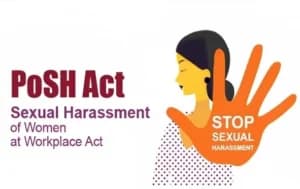The Kerala High Court recently upheld the decision of a Special Court to cancel the bail of an accused under the Narcotic Drugs and Psychotropic Substances Act, 1985 (NDPS Act), after he was found to be involved in another NDPS-related case while on bail.
Justice V.G. Arun expressed deep concern over the increasing penetration of drugs into society, particularly affecting school-going children. The Court emphasized that allowing an individual accused of drug-related offenses to remain free despite violating bail conditions poses a significant threat to society.
“The poisonous fangs of the drug mafia have reached even school-going children. While the liberty of an individual is precious and should be protected zealously, it cannot come at the cost of society. An accused who misuses his liberty by committing the same offense, if allowed to roam free, will undoubtedly be a threat to the community.”
Read Also:- Calcutta High Court Directs State to Control Student Unrest at Jadavpur University Amid Violent Clashes
Background of the Case
The accused was initially booked under Sections 22(b) and 29(1) of the NDPS Act for possessing 7.22 grams of MDMA. He was granted bail by the High Court with a clear condition that he should not engage in any other criminal activities. However, he was later found involved in additional cases under Sections 22(b), 29, and 22(a) of the NDPS Act. As a result, the Special Court canceled his bail, prompting him to challenge the decision in the High Court.
The petitioner relied on previous rulings such as Godson v. State of Kerala (2022), Renjith v. State of Kerala (2023), and Visakh v. State of Kerala (2024), arguing that merely being named in another crime does not automatically justify bail cancellation. The defense also cited the Supreme Court’s judgment in Dolat Ram v. State of Haryana (1995), which distinguishes between bail grant and cancellation, asserting that bail should not be revoked unless the accused has interfered with the administration of justice.
On the other hand, the prosecution argued that the accused’s repeated involvement in similar crimes demonstrated a blatant misuse of the bail privilege. Citing P. v. State of Madhya Pradesh (2022), the prosecution contended that such misconduct alone is a valid reason for revoking bail.
Read Also:- Meghalaya HC Expresses Displeasure Over Delay in Setting Up Crematoria for Indigenous Communities
The Court acknowledged that bail cannot be canceled mechanically just because of subsequent criminal allegations. However, it noted that in previous cases cited by the petitioner, at least one of the crimes involved offenses under the Indian Penal Code (IPC), whereas in this case, both the initial and subsequent offenses were under the NDPS Act.
The Court highlighted the stringent provisions under Sections 31 and 31A of the NDPS Act, which prescribe enhanced punishments and even the death penalty for repeat offenders. The seriousness of drug-related crimes was further reinforced by the application of Section 37 of the Act, which imposes stringent conditions for granting bail.
“In 2024 alone, 24,517 narcotic-related arrests were reported in Kerala. The rising tide of substance abuse even led the State legislature to suspend regular business to discuss its societal impact. This Court cannot turn a blind eye to these harsh realities.”
Given the gravity of the offense and the societal implications of drug-related crimes, the High Court ruled that the bail granted to the accused was rightly canceled, even if the subsequent crime did not directly interfere with the trial of the initial case.
Case No: Crl.MC 1199 of 2025
Case Title: Muhammed Shibil v State of Kerala and Another















